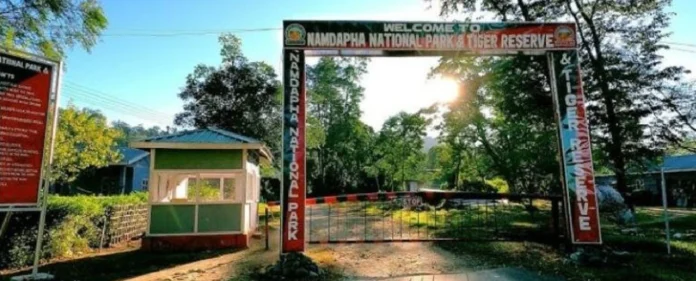By Lakshmi from Arunachal Pradesh
The Changlang district of Arunachal Pradesh, bordering the Namdapha National Park and Tiger Reserve (NP&TR), depends heavily on large cardamom cultivation. This highly lucrative spice serves as the primary source of livelihood for the local community and has long supported the region’s economic stability.
Recently, however, the district administration issued an order requiring large cardamom cultivators to obtain a No Objection Certificate (NOC) from the field director
of NP&TR. The directive, allegedly based on claims that cultivation is taking place within the Park’s “core area,” has triggered widespread unrest. Farmers argue that they have been cultivating lawfully for years, making the sudden restrictions both baffling and disruptive.
Ambiguity and Administrative Hurdles
Adding to the tension is the ambiguity surrounding the “core area” designation. The lack of clear demarcation and the unavailability of the field director to address concerns have exacerbated the situation. Cultivators, supported by the Yobin Welfare Society (YWS), assert that they already hold valid permits from local authorities. Despite repeated appeals, the district commissioner has remained unresponsive, further deepening frustrations.
Community leaders, including local MLA Kamlong Mossang, have expressed concerns over the hardships imposed on farmers. Many cultivators face multiple checkpoints and arduous journeys to transport their produce to markets. With the restrictions imposed during peak trading season, the economic survival of these farmers—and their ability to provide education for their children—is now under threat.
A Threat To Livelihood And Legal Rights
Farmers view the order as unjust, a violation of their right to livelihood, and contradictory to the government’s vision of supporting agricultural growth. They are demanding the immediate withdrawal of the directive to safeguard their economic future and dignity.
Speaking to India Legal, Phuyosa Yobin, legal advisor of the Yobin Welfare Society, shed light on the grievances: “The community’s contributions and existence remain unrecognized by the government, depriving us of essential support, representation, and identity. Our sole source of livelihood—large cardamom cultivation—is being severely disrupted, threatening our economic survival.”
For cultivators, the sudden order has come as a jolt. They are struggling to understand why such restrictions have been imposed without prior notice or warning. Yobin questions the abrupt shift: “Despite cultivating the crop for the past eight years without any hindrances, the sudden restrictions, as outlined in the directive, have been imposed without adequate and credible justification. If the government intends to curtail our primary means of sustenance, it must provide appropriate compensation through alternative employment opportunities. The failure to implement such measures raises serious concerns about the fairness and legality of the imposed restrictions.”
Lack of Official Clarity
The directive requiring cultivators to obtain an NOC from the field director has led to significant challenges. According to Yobin, the official in question remains unavailable, allegedly out of station and too preoccupied to provide clarity. This administrative vacuum has left farmers without a point of contact, resulting in confusion and indecision.
The India Legal team attempted to reach the deputy commissioner for an official response. However, despite repeated calls, there was no reply from his side.
Legal Questions Surrounding The Directive
For the past eight years, large cardamom cultivators have been engaged in farming and trade without any legal objections from authorities. This prolonged period of uninterrupted cultivation raises serious legal concerns about the sudden enforcement of the NOC mandate. If the practice was deemed lawful—or overlooked—for nearly a decade, what legal basis justifies the abrupt restrictions now?
Was there a prior notification, demarcation, or official classification of the area as a “core zone” under the Wildlife (Protection) Act, 1972? If not, the sudden restriction appears arbitrary and legally unsound. The absence of consistent regulatory oversight undermines the validity of the order and suggests a possible violation of the cultivators’ constitutional rights under Article 14, which prohibits arbitrary state action. Moreover, the directive contradicts the spirit of the Scheduled Tribes and Other Traditional Forest Dwellers (Recognition of Forest Rights) Act, 2006, which aims to safeguard indigenous communities’ resource rights.
A Call For Transparency And Fairness
The authorities must provide a clear, lawful explanation for this sudden policy shift. Farmers, whose livelihoods are at stake, deserve transparency, fair treatment, and—if restrictions are indeed necessary—alternative livelihood options to ensure they are not unjustly deprived of their economic security.
—With inputs from India Legal Bureau


